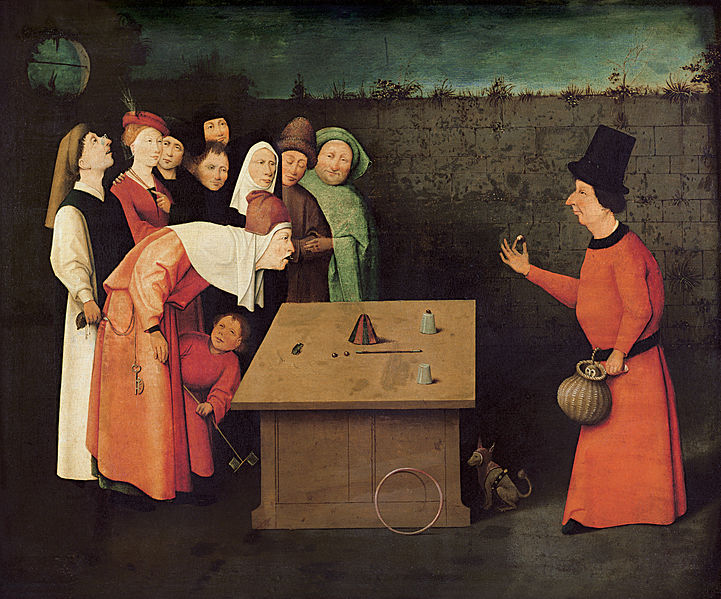Language is simple and straight-forward. Scenery, external and internal sensations, hopes and fears: all descriptions flow along together. Voice is omniscient narrator but only focused on the actions and happenings around and internal world of the main character.
Story is sad. Man is sick, starving, hurt, and exhausted. Wolf too. Both are dying. Science men are silly. Weather is scary. Friend abandons man. Lonely starving stumbling along cold damp exhausted constantly frustrated as mind and body fail and cause him to lose game and way. Lusting after animals to eat. Caught in a mutual death-trance with the sick, sagging-eared, blurry-eyed, white-mucousy-tongued wolf. Bound to the wilderness, to the other animals with that dying embrace of bitter enemies fighting to the death only to be glad to rest in each other’s arms as death closes in and there’s no one else to hold you. How exhausting it is. How dark and lonely is this animal love that has no space for resentment or pity. We kill each other gently, with our last drop of strength, drained of all passion but the longing to survive. This survival-logic makes sense when you are a few animals in the woods fighting to get by. But I think it somehow also justifies corruption in human endeavors, and here it generally makes much less sense than people tell themselves it does: they go to “survival mode” to justify their indifference to the suffering of others; but their real situation would’ve allowed for more space for compassion.
Plot: Two men stumbling through the Yukon with gold in their packs, trying to get to their canoe and then to a Hudson Bay Company post. Main character sprains his ankle while crossing a freezing cold stream. His friend ignores his cries and keeps walking jerkily (bent over his pack, with uneven and halting steps) ahead. That’s the first page. The next twenty or so are us watching as the main character suffers along. The last page is a quick synopsis of a scientific expedition rescuing the main character, feeding him and otherwise bringing him back to life, and then watching in bemused interest as he hoards hardtack. It ends with the scientists concluding he’s fundamentally sane and will snap out of this hardtack fixation, and then the statement that he does that. So all’s well that ends well. He crawled past the bones of his friend, but that guy was a jerk anyway.
A bit more on the plot: He gets so desperately hungry that he wonders off the route in chase of game which he keeps losing. He wanders on and on more and more hungry and exhausted until his stomach gives up and he’s no longer hungry, just weak. He’s dying. But he keeps forcing himself forward. He sees the whaler just as he notices a sick wolf that’s begun to stalk him, hoping he’ll die first. Man and wolf stagger along together for several days as he tries to reach the whaler. He’s already dumped all his gold and everything else but maybe his tin pale for boiling water. It’s August, but there’d already been snow, but now there’s a pleasant stretch of weather. He stumbles past his friend’s bones. The wolf bites him but he triumphs and drinks its blood, though all sustenance has long been just a chore he takes in for the sake of survival. He’s sure he can’t make it to the whaler, but in the final page he’s a ragged ruin crawling a dozen feet an hour in front of the whaler.
Lots of descriptions: Sky is often gray. Hills low. Snow and rain fall. He stumbles and squishes through the boglands. At some point the hunger that had been consuming his every thought disappears and he’s just weak, exhausted, tongue-swollen, staggering forward on auto-pilot. We see many frustrated hunting attempts: a minnow that escapes via a crevice from a pond that he’d baled out; a bird he wounds after chomping its new-born chicks down — he keeps chasing the bird and collapsing just as it collapses, and on and on they go until night falls and she’s lost. There’s one tiny bit of philosophizing about life and death. Lots of hallucinations plaguing him: there’s ammo in the gun (he has to keep checking to prove to himself that there is no ammo in the gun, and even though he knows there’s no ammo in the gun, he’s devastated each time he proves it to himself); he sees a horse that is actually a bear.
The story captures the dull sickening drudgery of a man dying of hunger, exhausted by the elements and injury, abandoned and dragging himself desperately along. At some point the narrator announces that it is not humanity in him fighting to survive but animal life. And that he’s an automaton — not suffering while he blindly and mechanically pushes forward. But around that time, the narrator also says that he eats (chomps on the odd minnow or bone marrow) only because it is reasonable — not because there’s any pleasure in it or because he desires to. So he’s reduced to the animal, but the animal has no passion except mechanically following precepts for survival.
The ending is kind of pat and cheery in the way stories in 1907 had to end. Or often did, anyway. But that’s just the final page. You have to get through like 20 pages of frustration and misery first.
“milky stream” repeated over and over again at beginning.
Copyright: AMW
